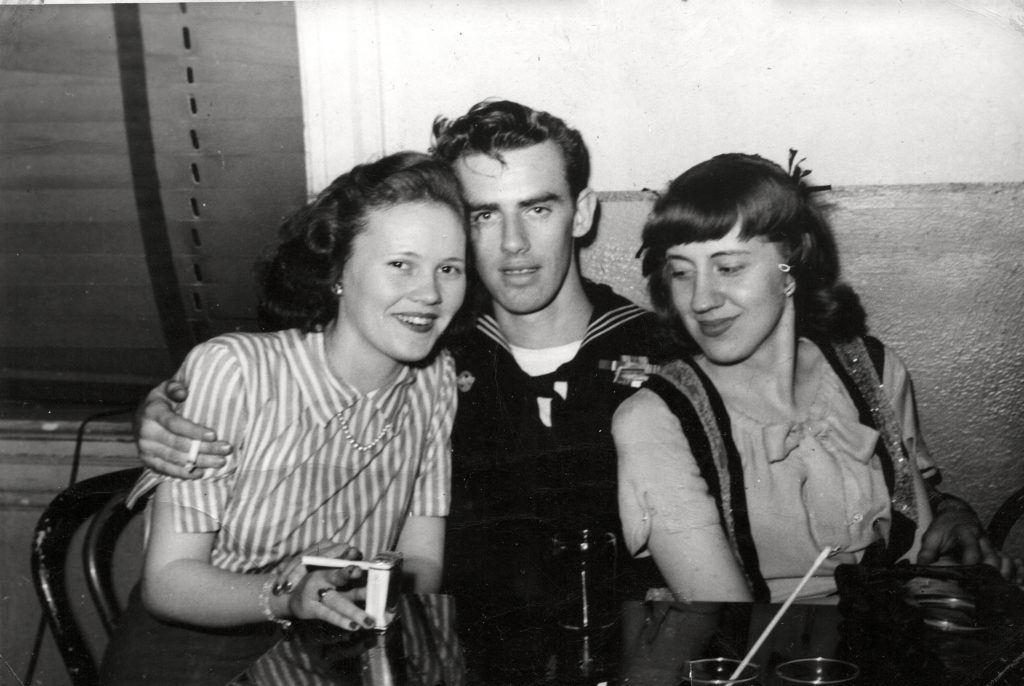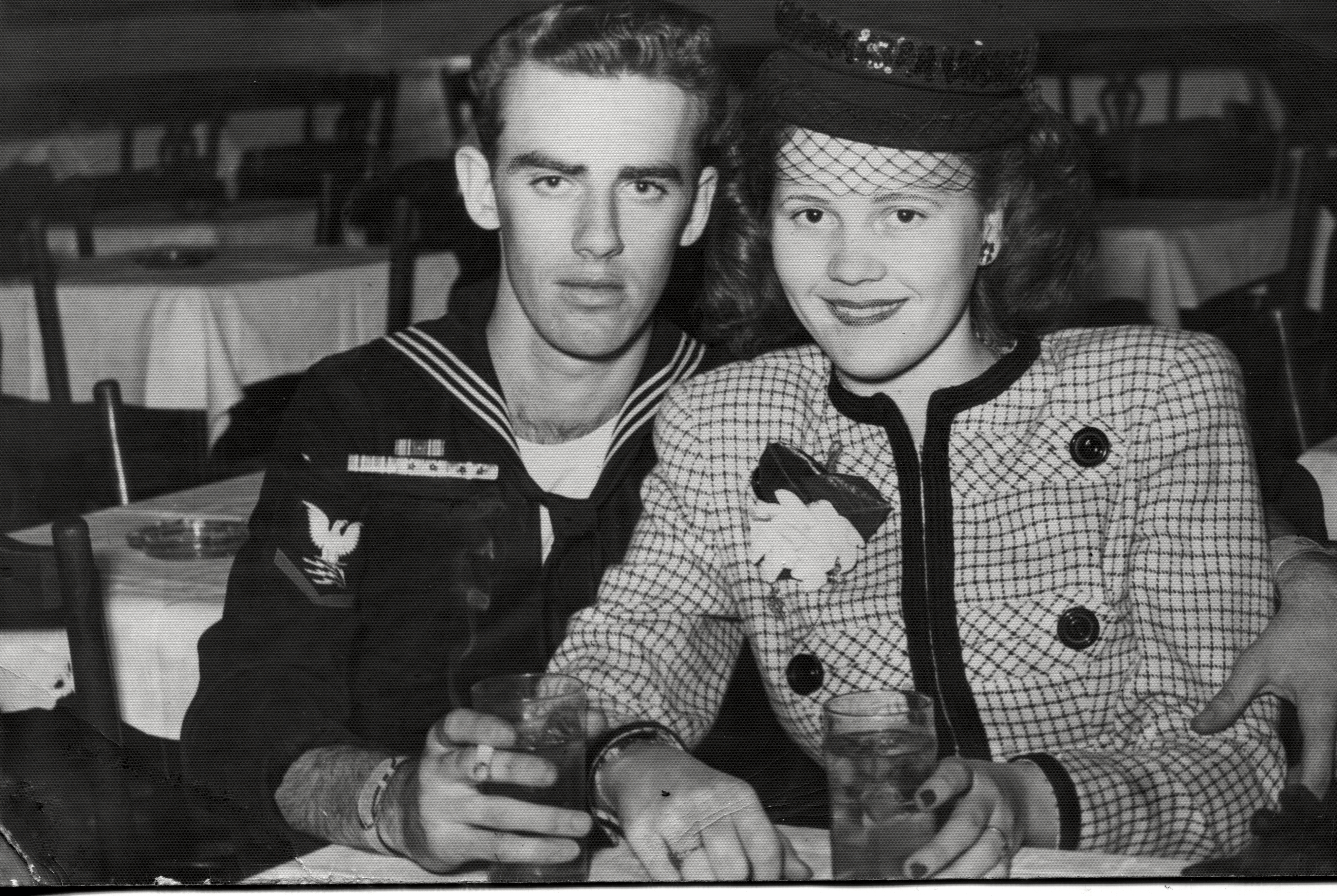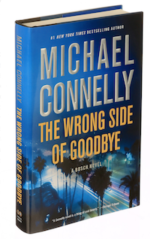I’ve read that memories are not retrieved or recalled but recreated. Sort of recompiled, changing slightly each time. Is a photo a memory? Only if I took the photo, was there to experience the moment captured. Is a photo history? Arguably more accurate than the one my brain creates.


I’m not headed anywhere with this, just rambling. These two photos are of my mother and father (and an unidentified friend). Probably taken sometime in 1946. My father was discharged from the Navy on March 9, 1946. He married my mother on March 23, 1946. So, as mom often claimed, they knew each other for two weeks before taking the plunge. This suggests the photos below were taken in March of 1946.
I can never know the people in these photos. What that time was like for them. This is as close as I will ever come. One instant in time (two in this case). Where were they? How long had they known each other. When/where/how did they meet? Who took the photos and why? Then again, maybe it’s better not to know. We can create our own histories, which we do in any event.
For me There is powerful magic in old photos. Even if I don’t know the people.

 “Each of Michael Connelly’s Harry Bosch books has a way of referring to earlier ones in the series, as when his latest, “The Wrong Side of Goodbye,” brings up something about a plastic surgeon. That surgeon figured in “The Crossing,” one of the series’s better recent installments. And it came out only a year ago. Still, I had to look it up, because the characters aren’t what make Mr. Connelly’s books worthwhile. The classic mystery plotting and streamlined storytelling are what render him so readable.”
“Each of Michael Connelly’s Harry Bosch books has a way of referring to earlier ones in the series, as when his latest, “The Wrong Side of Goodbye,” brings up something about a plastic surgeon. That surgeon figured in “The Crossing,” one of the series’s better recent installments. And it came out only a year ago. Still, I had to look it up, because the characters aren’t what make Mr. Connelly’s books worthwhile. The classic mystery plotting and streamlined storytelling are what render him so readable.”

